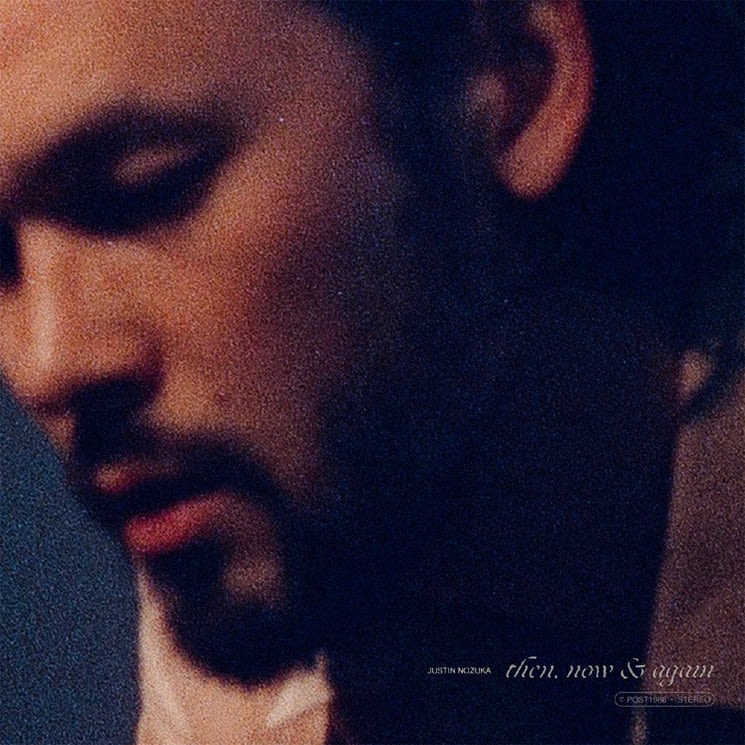On his first collection of songs since 2018's Run to Waters, Justin Nozuka tries to channel his musical beginnings. He cites '70s singer-songwriters, '90s hip-hop and '00s R&B as the music that ignited his own artistic passion and while then, now & again doesn't immediately bring those eras to mind, they do provide a strong foundation for a sound that is all Nozuka's own.
Mellow and compact, the EP is even-keeled from start to finish — therein lies the project's most obvious flaw. While there is certainly beauty in simplicity, this succession of ballads drifts from one to another with nearly imperceptible differences. Luckily, the pocket Nozuka chooses to stay in is a pleasant one: each song is calming and refreshingly delicate — a break from the dark, often acerbic brand of alt-R&B his peers are delivering these days. But with little to sonically distinguish one song from the next, something about then, now & again feels incomplete.
What the project lacks in variety though, it makes up for in sincerity and candour. The EP's uncomplicated backdrop allows Nozuka's voice to shine and his heartfelt delivery injects a certain warmth into even the coldest story. "Miami" draws on Nozuka's experience with being ghosted — he planned a romantic meet up under the palm trees only to be stood up by his date. He channels the pain from that situation into a haunting vocal performance that makes the heart swell. Nozuka explores the highs of love as well: "Rains It Pours" is a tender and soulful counter to "Miami"'s sadness; it's an ode to the honeymoon phase of a relationship and is perfect for cuddling. Nozuka infuses a touch of hip-hop influence on the steamy "summer night o8"; the rhythm of his delivery on this song has a certain pulse. And on "No One but You", Nozuka finds the perfect complement in British singer-songwriter Mahalia.
While it's not the most dynamic effort, do not mistake then, now & again for a throwaway. Sonically it plays a little too safe, but the vulnerability and relatability Nozuka delivers throughout offers something worthwhile to hold on to.
(Post 1988 / Black Box)Mellow and compact, the EP is even-keeled from start to finish — therein lies the project's most obvious flaw. While there is certainly beauty in simplicity, this succession of ballads drifts from one to another with nearly imperceptible differences. Luckily, the pocket Nozuka chooses to stay in is a pleasant one: each song is calming and refreshingly delicate — a break from the dark, often acerbic brand of alt-R&B his peers are delivering these days. But with little to sonically distinguish one song from the next, something about then, now & again feels incomplete.
What the project lacks in variety though, it makes up for in sincerity and candour. The EP's uncomplicated backdrop allows Nozuka's voice to shine and his heartfelt delivery injects a certain warmth into even the coldest story. "Miami" draws on Nozuka's experience with being ghosted — he planned a romantic meet up under the palm trees only to be stood up by his date. He channels the pain from that situation into a haunting vocal performance that makes the heart swell. Nozuka explores the highs of love as well: "Rains It Pours" is a tender and soulful counter to "Miami"'s sadness; it's an ode to the honeymoon phase of a relationship and is perfect for cuddling. Nozuka infuses a touch of hip-hop influence on the steamy "summer night o8"; the rhythm of his delivery on this song has a certain pulse. And on "No One but You", Nozuka finds the perfect complement in British singer-songwriter Mahalia.
While it's not the most dynamic effort, do not mistake then, now & again for a throwaway. Sonically it plays a little too safe, but the vulnerability and relatability Nozuka delivers throughout offers something worthwhile to hold on to.
